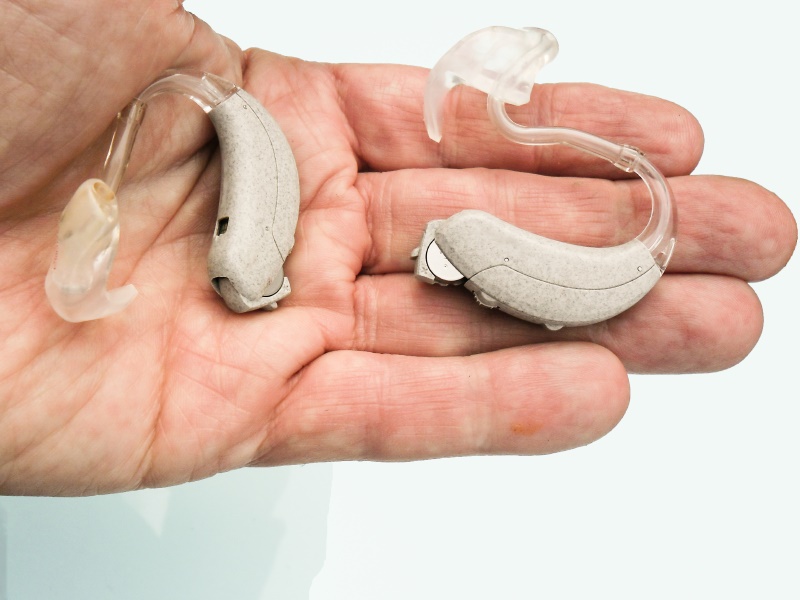
To help keep your hearing aids functioning effectively for years to come, you’ll want to learn about proper care and maintenance. And although it may feel like an extra burden, with the right plan your hearing aid care will become easy and automatic.
The trick is establishing productive habits.
If you assimilate your hearing aid care into your daily and nightly routines, after a while it won’t feel like any additional work at all.
Here are a few tips for the day-to-day care of your hearing aids (which your hearing professional will also discuss with you):
Clean your hearing aids on a daily basis – Aim to integrate your hearing aid cleaning into your evening routine, so it becomes as automatic as brushing your teeth. This is crucial because daily hearing aid cleaning can prevent the collection of earwax, dirt, and dust into the different parts of the hearing aid, which can cause distorted sound over time.
You’ll want to clean your hearing aid with a soft, dry cloth, while avoiding any fluids that can destroy the hearing aid electronics. Consult your hearing specialist for specialized guidelines on cleaning each kind of hearing aid.
You may also consider investing in a hearing aid sanitizer, which makes use of ultraviolet light to safely and thoroughly kill harmful pathogens. Hearing aid cleaning kits are also obtainable with all of the tools you’ll require to safely clean the device without causing harm to the electronics.
Always check the batteries – Hearing aid batteries should be checked and replaced frequently to assure peak hearing aid performance. Consider using a battery tester early in the day to assure you have enough power for the remainder of the day, and carry a spare set of batteries on hand.
At night, when your hearing aids are not in use, turn them off and store them in a cool, dry location with the battery door open.
Store your hearing aids in a secure place – With respect to storage, you’ll want to bear in mind three things:
- Keep the hearing aids away from moisture. This means that storing your hearing aids in the bathroom is probably a bad idea.
- Try to avoid subjecting the hearing aids—and hearing aid batteries—to temperature extremes. You’ll want to store your hearing aids in a cool, dry place.
- Avoid storing your hearing aids out in the open, where they can become damaged.
We suggest keeping your hearing aids in a container or drying kit inside the drawer of a bedroom side-table. This will safeguard the hearing aids from dampness, temperature extremes, and damage from being bumped off the table.
Also, remember to remove your hearing aids before taking a shower, swimming, or using a hair dryer or hair spray.
Maintain ear hygiene – While earwax has several helpful attributes, like protection and lubrication of the ear canal, it can wreak havoc on hearing aids. As it becomes lodged within the hearing aid hardware, sound can become distorted.
Make sure you’re keeping up appropriate ear hygiene, and if you experience increased earwax, consider setting up a visit with a professional.
Carefully put in your hearing aids – When inserting your hearing aids, lean over a table or soft surface in case the hearing aids fall. Hearing aids contain fragile electronics, so a fall on a hard surface could produce severe damage.
Even with vigilant cleaning and maintenance, after a while the hearing aid will call for more thorough cleaning or repair.
To make sure that you continue to enjoy the best sound possible, we highly recommend getting your hearing aids professionally cleaned by a hearing professional at the least twice a year.
Hearing care professionals can render a deep cleaning, a tune-up, and will sometimes replace parts. Staying on top of this regular maintenance will prolong the life of your hearing aids and will ensure that you get the best sound.

